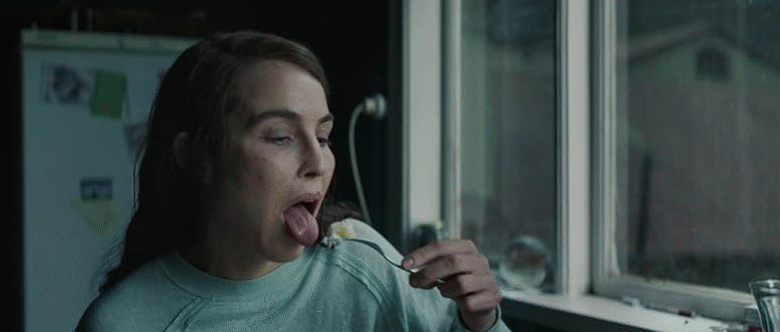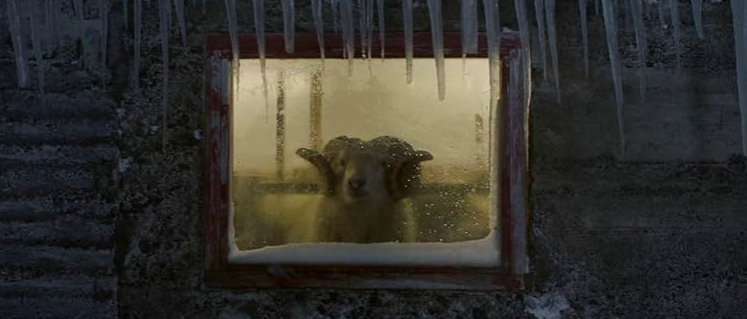Lamb (2021)

🎬 Lamb (2021) – A Haunting Fable of Loss, Longing, and the Unnatural
Lamb (Dýrið), directed by Valdimar Jóhannsson, is not your typical horror or fantasy film — it’s a quiet, eerie fable that blends Icelandic folklore, grief, and the uncanny into something uniquely unsettling. It whispers rather than shouts, drawing you into a landscape as beautiful as it is barren, where something ancient seems to lurk beneath the stillness.

The story follows Maria and Ingvar, a couple living on a remote Icelandic farm, burdened by a quiet sorrow. When one of their sheep gives birth to something… different, the couple decides to raise it as their own child. The creature — part human, part lamb — becomes both a symbol of hope and a harbinger of tension. As the story unfolds, the line between love and delusion blurs.

Noomi Rapace delivers a mesmerizing performance as Maria — at once maternal and haunting. Her silence is often more powerful than words, capturing the ache of a woman who has lost something precious and will do anything to fill that void. The film doesn’t rely on jump scares or loud conflict; instead, it lets the unease grow slowly, like fog rolling in over a quiet field.
Visually, Lamb is stunning. The Icelandic landscape is both breathtaking and isolating, serving as a silent witness to the characters’ choices. Every frame feels intentional, every silence deliberate — creating a mood that’s part dream, part nightmare.

This is a film about grief — how it can twist love, shape reality, and even invite the unnatural. It’s a slow-burning tale that doesn’t explain itself, and that’s part of its power. Lamb doesn’t give easy answers; it lingers with you, like a dream you can’t quite shake.
⭐️ Verdict: 4.5/5
A beautifully strange film — quiet, poetic, and deeply unsettling. Lamb is a modern folktale that explores how far we’ll go to reclaim what we’ve lost… even if it means embracing the unnatural.





